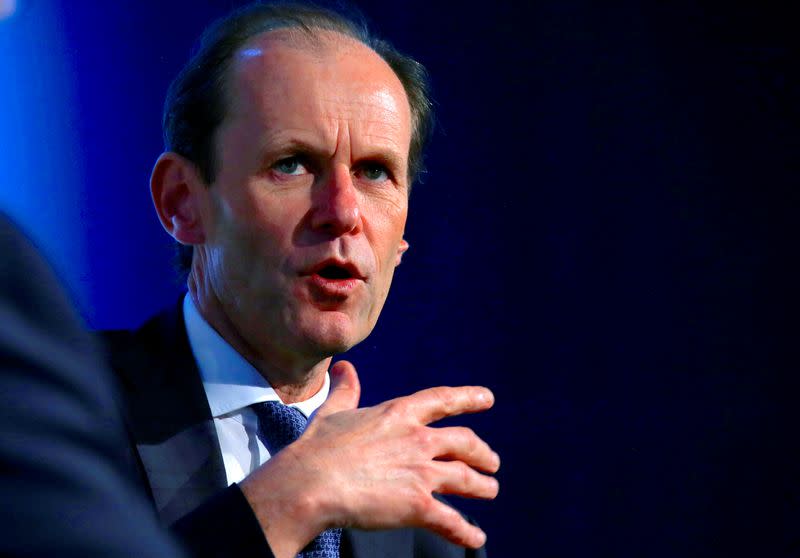ANZ CEO: Banking turmoil has potential to trigger financial crisis

By Renju Jose
SYDNEY (Reuters) -Australia and New Zealand Banking Group's CEO said on Monday the latest turmoil in the global banking system had the potential to trigger a financial crisis though it was early to predict it could bring one similar to that in 2008.
Authorities around the world are on high alert for the fallout from the recent turmoil at banks following the collapse of Silicon Valley Bank (SVB) and Signature Bank in the U.S. and the emergency takeover of Credit Suisse.
"It's a crisis for some obviously, but is it a financial crisis, who knows? Does it have the potential to be one? Yes, it does have the potential to be one," CEO Shayne Elliott said in an interview on the bank's website.
But he said it was premature to assume the current condition could result in "another GFC", referring to the global financial crisis around 15 years ago that plunged the world's major advanced economies into their worst recession since the Great Depression in the 1930s.
Australian banks did not suffer as much as those in the U.S. and Britain during the 2008 crisis, thanks in part to tighter lending standards and a more resilient home economy.
"This is a different issue. This is really to do with the global war on inflation and how central banks are raising rates very quickly in order to combat that, and that has casualties," Elliott, the top executive at the country's no.4 lender, said.
Australia's banking regulator, soon after the collapse of startup-focused lender SVB, flagged it had intensified supervision of local banks.
Global regulators have acted much quicker to support banks this time, having learned lessons from the prior crises, Elliott said.
"Having said all that, it's clearly not over. I don't think you can sit here and say, 'Well, that's all done, Silicon Valley Bank and Credit Suisse and, you know, life will go back to normal'. These things tend to roll through over a long period of time."
Rachel Slade, personal banking group executive at the country's second-largest lender, National Australia Bank Ltd, told the Australian Financial Review on Monday that mortgage customers had started showing first signs of strain after 10 straight rate rises, but there were no spikes yet on defaults.
Treasurer Jim Chalmers has said Australia was in a good position to hold out against some of the volatility because its banks were well capitalised, while the Reserve Bank of Australia last week flagged the banks were "unquestionably strong".
(Reporting by Renju Jose in Sydney; Editing by Muralikumar Anantharaman)

 Yahoo Finance
Yahoo Finance 